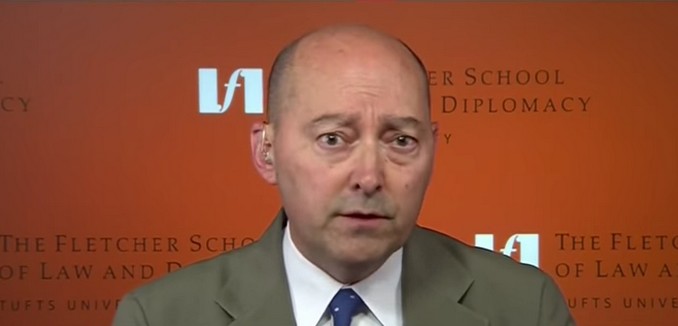The component of the recent agreement with Iran that will verify if its nuclear program is in compliance is “starting roughly to resemble Swiss cheese,” former NATO Supreme Allied Commander Adm. James Stavridis said Wednesday.
When asked his views on the deal, formally known as the Joint Comprehensive Plan of Action (JCPOA), on MSNBC’s Morning Joe, Stavridis, now the dean of the Fletcher School of International affairs at Tufts University also expressed concern over the billions of dollars of sanctions relief that Iran is set to receive. A clip of the interview is embedded below.
I think the top [issue] is the verification regime, which is starting roughly to resemble Swiss cheese. You could drive a truck though some of these holes, and I am very concerned about that. …
Reportedly, [a side deal] puts Iran in the position of actually proffering samples as opposed to having them actually taken by the [International Atomic Energy Agency]. I haven’t read that side deal but I want to and I sure hope that Congress reads it. Secondly, the 24 day period is very concerning. And thirdly, the entire zeitgeist of the agreement, at this point, seems to very much favor the Iranians in pursuing the bomb. But look, that’s really not the problem, the biggest problem here is the airdrop of $100 to $150 billion into their economy, which is only $350 billion to begin with. That’s like the U.S. getting a $4 trillion insertion of capital. That’s the teeth of alligator you just heard heard about. Those are two big concerns that are hard to get by.
A leading think tank devoted to nuclear nonproliferation recently noted that the JCPOA’s verification process requires additional strengthening to be effective in during the first ten to fifteen years of the deal, and will be inadequate at detecting Iranian cheating after the terms of the deal expire.
Stavridis said that without the JCPOA, Iran could still be prevented from obtaining a nuclear weapon.
I think the U.S. still can drive some degree of sanctions. We have a fair amount of control over a good deal of the frozen assets within our national sovereignty. It’s possible we could get some of the Europeans, notably France, to go along with us. There are cyber options to pursue. There are clandestine options to pursue. There are special forces options to pursue. I reject the notion that the choice is simply between this deal and going to war.
Chairman of the Joint Chiefs of Staff Gen. Martin Dempsey seemingly supported Stavridis’ assertion in a hearing Wednesday before the Senate Armed Forces Committee. When asked whether he ever suggested to President Barack Obama that the choice was between an Iranian nuclear deal and war, he responded, “No, at no time did that come up in our conversation, nor did I make that comment. I can tell you that we have a range of options, and I always present them.”
[Photo: Washington Free Beacon / YouTube ]




